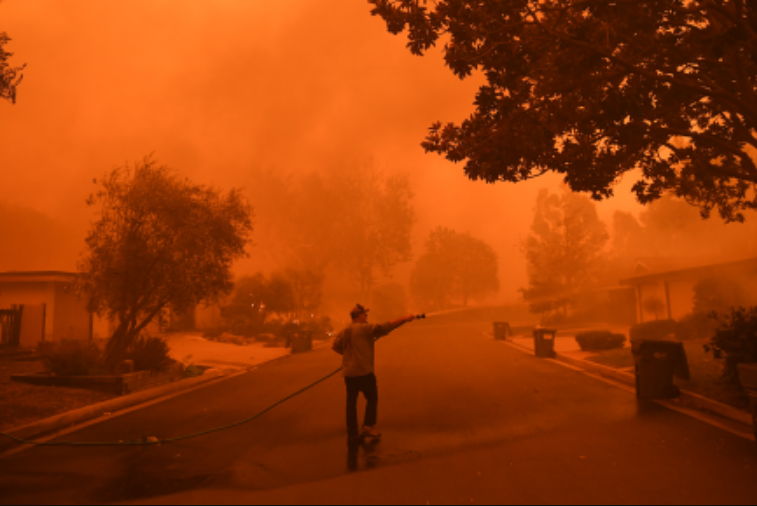How Climate Change Is Affecting Our Health in Unexpected Ways
Climate change is no longer just about rising seas or storm risk. It’s impacting human health in surprising and serious ways—from fungal threats to mental illness, respiratory damage, and accelerated aging.
Heat’s Hidden Health Costs
First, extreme heat is the number‑one climate‑related killer worldwide. Nearly half a million heat-related deaths occur annually, many undercounted or misclassified.
Then again, new research shows sustained heat exposure can accelerate biological aging by up to 2.5 years—comparable to smoking effects.
Meanwhile, dangerous hyponatremia—caused by sodium dilution due to excessive sweating or poor hydration choices—is surging among outdoor and elderly populations. It can cause seizures or coma.
Also, heat worsens sleep apnea: warmer nights raise OSA risk by 45%, reducing sleep quality and workplace productivity.
Breathing and Allergic Illnesses
Moreover, rising temperatures fuel ozone formation and lengthen pollen seasons. That results in more severe asthma, hay fever, COPD, and respiratory hospitalizations.
Also, wildfires now release toxic smoke and fine particles, triggering heart attacks, bronchitis, and even lung cancer—especially in vulnerable populations.
Expanding Infectious Disease Risks
Furthermore, warming climates let mosquitoes, ticks, and rodent-borne viruses spread into regions they previously could not reach. Diseases like dengue, malaria, Zika, West Nile virus, Lyme disease, and hantavirus are becoming more common in the U.S., Canada, Europe, and Asia.
Also, warmer, wetter weather and extreme flooding increase waterborne outbreaks—from cholera to salmonella and paralytic shellfish poisons.
Mental Health & Eco-Anxiety
At the same time, mental health is under siege. Extreme weather events—such as floods and fires—trigger PTSD, anxiety, and depression that persist for years.
Moreover, even without direct exposure, climate anxiety and feelings of helplessness are rising, especially among youth.
Also, high heat increases emergency calls for psychiatric conditions, and suicide risk appears to rise with every 1 °C temperature jump.
Long-Term Effects: Cancer & Chronic Illness
New evidence suggests rising ambient and ozone-related pollution may correlate with higher cancer rates among women in the Middle East and North Africa, especially ovarian and breast cancer.
Meanwhile, inflammation and oxidative stress from heat, pollutants, or wildfires may raise cardiovascular risks and cognitive decline over time.
Age Acceleration and Vulnerable Groups
Then, elderly and outdoor workers face compounded risks. Heat risks for these groups drive heart events, kidney failure, and early death.
Some reports indicate older adults living in hotter regions show accelerated epigenetic aging by nearly three years.
Meanwhile, children under five bear the worst burden from disrupted environments, malnutrition, displaced communities, and vector disease.
Unexpected Health Threats
Moreover, fungal pathogens are evolving due to climate change. Multidrug-resistant Candida auris now thrives at human body temperatures, posing hospital outbreaks that existing treatments struggle to contain.
Also, fungal infections like Cryptococcus neoformans remain a leading cause of death among immunocompromised patients. Global initiatives are investing in new drug development to combat this emerging threat.
Furthermore, sleep disruption from heat and pollution reduces natural CPAP effectiveness for sleep apnea sufferers. That amplifies cardiovascular risk and reduces daytime functioning.
Equity, Food, and Nutrition Impact
Also, climate-driven shifts in agriculture reduce crop nutrient density (protein, zinc, iron), worsening malnutrition risk—especially in underserved areas.
Similarly, flooding and drought disrupt food supply, affecting access to fresh produce, amplifying reliance on processed foods, which undermines long-term health.
Why This Matters to Communities
Because climate-associated health risks hit unevenly: older adults, low-income communities, outdoor laborers, and children bear the highest burden.
Importantly, many health impacts operate slowly and invisibly—cumulative aging, worsening allergies, hidden malnutrition, chronic stress—but compound over years.
Ultimately, prevention demands more than personal adaptation—it requires public policy, urban planning, climate mitigation, and health system strengthening.
Summary Table
Unexpected Impact Emerging Evidence Health Implication
Accelerated aging Heat exposure speeds biological aging Chronic disease, reduced lifespan
Severe hyponatremia Increased cases in hot climates Coma, seizures, kidney hospitalization
Worsening sleep apnea OSA spikes on warmer nights Heart disease, lost productivity
Drug-resistant fungi Candida auris adapts to human temperatures Deadly hospital infections, limited treatment
Cancer risk increase Correlated with heat, ozone, pollution Higher rates of ovarian/breast cancer in warm regions
Allergy & asthma surge Longer pollen seasons, wildfire smoke spikes Respiratory distress, hospital demand
Vector-borne diseases Expanded ticks/mosquito zones New outbreaks in previously safe regions
Mental health disorders PTSD, eco-anxiety, suicide rise Long-term societal and clinical impact
Nutritional decline Low nutrient crop yield under CO₂ conditions Micronutrient deficiencies, food system destabilization
What You Can Do
Support early warning and cooling systems: city cooling centers, shaded public spaces, hydration programs.
Advocate for stronger public health interventions: heat wave planning, mental health support after disasters, indoor air filtration standards.
Vote for climate-smart urban design: more trees, heat-reflecting surfaces, and flood-safe water infrastructure.
Promote equitable adaptation in schools, workplaces, and health systems to protect the most vulnerable.
Final Thoughts
Ultimately, climate change is reshaping how we age, breathe, sleep, and feel—all in unexpected ways. The health consequences cut deep across physical, mental, and social fronts. It’s about more than emergency medicine—it’s about climate justice, public policy, and collective resilience.
